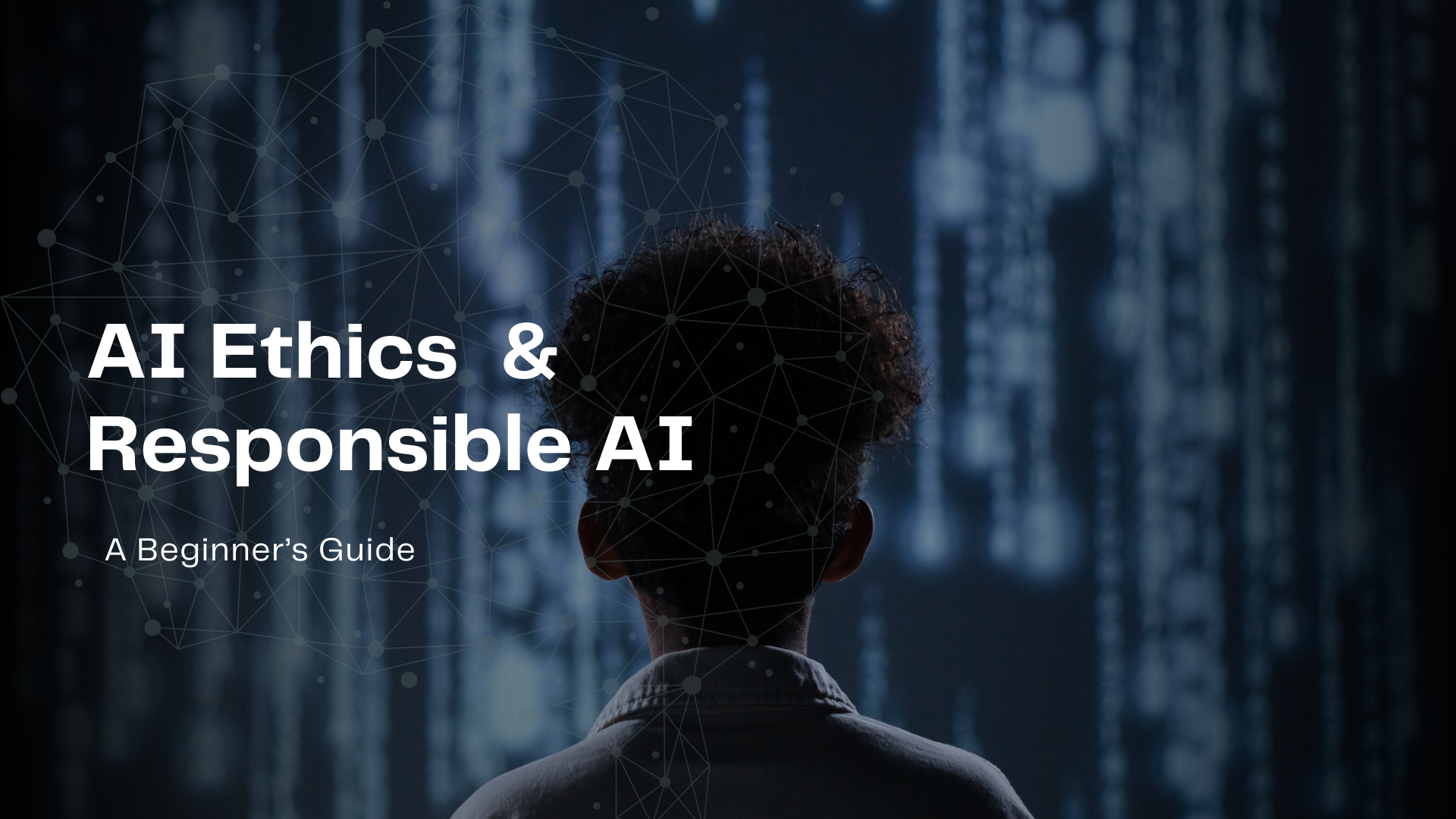
AI Ethics and Responsible AI:
A Beginner's Guide
Introduction
Artificial Intelligence (AI) is changing our world, from virtual assistants like Siri and Alexa to self-driving cars and AI-generated art. While AI offers incredible opportunities, it also raises ethical concerns. Who is responsible when AI makes a mistake? Can AI be biased? How do we ensure AI is used for good? These are some of the fundamental questions in AI ethics and responsible AI.
This guide will break down these topics in a simple and easy-to-understand way, helping beginners and non-technical readers understand why ethics matter in AI and how we can build responsible AI systems.
What is AI Ethics?
AI ethics refers to the moral principles and guidelines that govern the development and use of artificial intelligence. Since AI can impact people’s lives in significant ways, ensuring that AI operates fairly and safely is crucial. AI ethics aims to answer key questions such as:
How should AI make decisions?
What safeguards should exist to prevent harm?
Who is accountable for AI actions?
Why AI Ethics Matters
AI is powerful, but it is not perfect. If AI systems are not designed responsibly, they can reinforce unfair biases, make incorrect decisions, or even be used for harmful purposes. Examples of ethical concerns include:
Bias in AI: AI models learn from data, and if that data reflects human biases, the AI may make biased decisions.
Privacy Issues: AI systems collect vast amounts of data, raising concerns about how personal information is used and stored.
Accountability: If an AI-powered self-driving car causes an accident, who is responsible—the manufacturer, the software developer, or the AI itself?
Understanding these challenges is the first step toward ensuring AI benefits everyone.
Key Ethical Concerns in AI
1. AI Bias and Fairness
AI systems learn from large datasets, and if those datasets contain biased information, AI may make biased decisions. For example:
Hiring AI: Some AI-powered hiring tools have been found to favor certain demographic groups over others due to biased training data.
Facial Recognition: AI facial recognition technology has been shown to have higher error rates for people of color, leading to misidentifications.
How to address bias in AI?
Use diverse and representative datasets.
Continuously test AI models for bias and correct any unfair patterns.
Implement transparency in AI decision-making processes.
2. Privacy and AI
Many AI systems rely on collecting and analyzing large amounts of data. This
raises serious privacy concerns, such as:
Data Collection: Social media platforms use AI to track user behavior and
suggest content, but this also means they collect personal data.
AI in Surveillance: Governments and companies use AI-powered surveillance
cameras, leading to debates about privacy and consent.
How to protect privacy?
Use AI systems that minimize data collection.
Implement strong data protection laws and regulations.
Allow users to control how their data is collected and used.
3. Accountability and Transparency
Who is responsible when AI makes a mistake? This is one of the biggest challenges in AI ethics.
Example: If an AI doctor misdiagnoses a patient, who is responsible—the doctor, the AI developer, or the hospital?
Transparency Issues: Many AI models, especially deep learning models, function as "black boxes," meaning their decision-making process is not fully understood.
How to improve accountability?
AI developers should document how AI models work and what data they use.
Organizations using AI should disclose how decisions are made.
Governments should establish clear AI regulations.
4. The Impact of AI on Jobs
AI can automate tasks, which raises concerns about job losses. While AI can improve efficiency, it also changes the job market.
Automation in Industries: Factories use AI-powered robots to perform repetitive tasks, reducing the need for human workers.
AI in Customer Service: AI chatbots handle customer inquiries, replacing some human customer service jobs.
How to address job displacement?
Provide reskilling and training programs for workers affected by AI automation.
Encourage industries to use AI as a tool to assist workers rather than replace them.
Promote AI policies that create new job opportunities.
What is Responsible AI?
Responsible AI refers to the development and deployment of AI systems that prioritize ethical considerations, fairness, and accountability.
Principles of Responsible AI:
Fairness: AI should make unbiased decisions and not discriminate.
Transparency: AI decision-making should be explainable.
Privacy: AI should protect users' personal data.
Accountability: Developers and companies should take responsibility for AI actions.
Safety: AI should minimize risks and avoid causing harm.
Examples of Responsible AI in Action
Google's AI Principles: Google has outlined ethical AI guidelines, including fairness, transparency, and social benefit.
IBM’s AI Ethics Board: IBM has created an ethics board to review AI projects and ensure responsible AI development.
AI for Good Initiatives: Organizations like UNESCO and OpenAI are working on AI solutions for social good, such as AI-driven medical research.
The Future of AI Ethics
AI is evolving rapidly, and ethical considerations will continue to shape its future. Some key trends include:
Stronger AI Regulations: Governments are creating laws to ensure AI is used ethically.
Explainable AI: Researchers are working on AI models that can clearly explain how they make decisions.
Ethical AI in Education: Schools and universities are teaching AI ethics to ensure the next generation of developers builds responsible AI.
Conclusion
AI is a powerful tool that can improve our lives, but it must be developed responsibly. Ethical AI ensures fairness, privacy, and accountability while minimizing risks. By understanding AI ethics and advocating responsible AI, we can create a future where AI benefits everyone.
Call to Action
Stay informed about AI developments and ethics.
Support companies and policies that prioritize responsible AI.
Engage in discussions about AI’s impact on society.
Artificial Intelligence is here to stay. The question is: how do we make sure it works for everyone? The answer lies in ethical AI development and responsible use.
